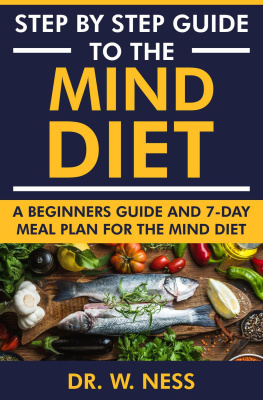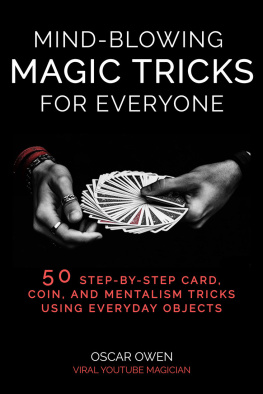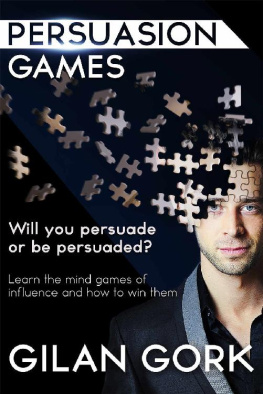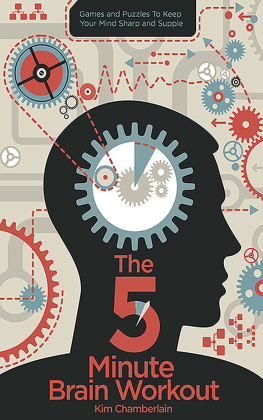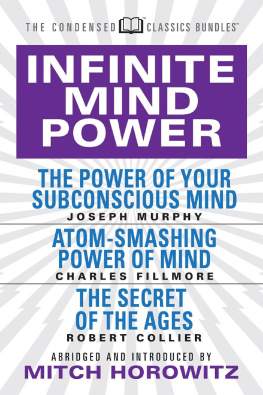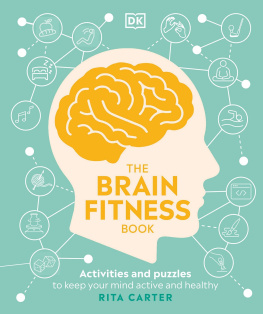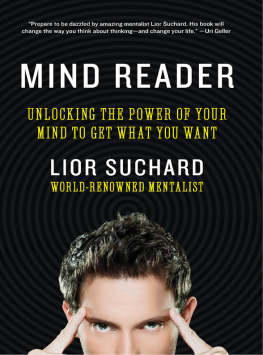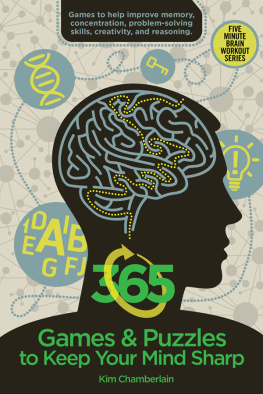


Fall River Press and the distinctive Fall River Press logo
are registered trademarks of Barnes & Noble, Inc.
2004 by Gusto Company AS
Designed by Allen Boe
Illustrated by Allen De Boe and AnnDra De Boe
Photography by AnnDra De Boe
All rights reserved. No part of this publication may be reproduced, stored in a retrieval system, or transmitted, in any form or by any means, electronic, mechanical, photocopying, recording, or otherwise, without prior written permission from the publisher.
ISBN 978-1-4351-3897-1 (e-book)
1 3 5 7 9 10 8 6 4 2
For information about custom editions, special sales, and premium and corporate purchases, please contact Sterling Special Sales at 800-805-5489 or specialsales@sterlingpublishing.com
www.sterlingpublishing.com
Introduction
The brain is a three-pound supercomputer with 100 billion nerve cells and more connections than there are stars in the universe. It determines how you think, feel, move, communicate, and stay alive, and yet its composed of 85 percent water and some fleshy bits.
Its a truly amazing achievement. You should be very proud of your brain because you grew it yourself. And the more you use it, the bigger and heavier it gets! Did you know that if all the neural connections between your brain cells were laid out end to end they would reach to the moon and back?
That said, theres still an ocean of untapped potential in all that gray matter. So why not develop it? Use it rather than lose it! Some of the most extraordinary achievements have been made by people with ordinary brains. They just used them a little differently than other people.
A quarterback wins games not just because of superior techniquebut because of his mindset. This book shows 50 ways to unlock some of the mysterious potential in your brain so that you can achieve things you never dreamed possible. Some of them are tricks, some are applied science, and others involve intriguing ways of relearning the way you think. Either way, its all in the mind.

Your Brain Exploded







Feed Your Brain
What you eat has a profound effect on how your brain functions. Eating the right food in the correct portions at suitable times will give you mental and physical energy all day long. Here are 10 ways to nourish your brain:
Certain vitamins are essential to normal nerve and brain function:
B1 (thiamine) found in whole-grain bread, rice, and pasta |
B5 (pantothenic acid) found in meat, poultry, fish, whole-grain cereals, legumes, milk, vegetables, and fruit |
B6 (pyridoxine) found in chicken, fish, pork, liver, kidney, whole-grain cereals, nuts, and legumes |
B12 (cyanocobalamin) found in eggs, meat, fish, poultry, and dairy products |
C (ascorbic acid) found in fresh fruit and vegetables |
Folic acid found in bananas, orange juice, fortified cereals, leafy vegetables, dried beans, and peas |
Watch your carbs. Your brain uses up 20 percent of your bodys carbohydrate requirements, but it likes them to arrive nice and steady. When your blood sugar levels become erratic, your brain function plummets. Junk and processed foods release sugar into the bloodstream quickly, triggering the release of insulin, which gobbles up the sugar. This sends your blood sugar levels way down low, so your body then has to release carbohydrates from your liver. This yo-yo effect is very bad for your concentration and mood.
Brain-friendly carbs have a low glycemic index, which means they release their sugars slowly (which your brain prefers). These include fruit (not fruit juice), whole-grain cereals (not sugar coated) and grains, vegetables (except potatoes and carrots), milk, and yogurt.
Graze throughout the day on nutritious foods that are low in fat and sugar.
Eat a high-protein meal with complex carbohydrates for breakfast to make you alert.
Eat a higher calorie, higher carbohydrate, lower protein meal in the evening to help you sleep.
The more simple sugars that are in your meal, the more serotonin your body produces, which is a brain sedative. Therefore if you eat lots of sugary food, you are actually putting your brain to sleep.
DHA (docosahexaenoic acid), an omega-3 fatty acid, is a primary structural part of your brain tissue, so make sure you are getting enough. Rich sources of DHA are found in coldwater fish (sardines, tuna, salmon), fish oils, and flaxseed oil.
Avoid hydrogenated and partially hydrogenated fats that are high in trans-fatty acids because they impede brain function.
Drink at least eight glasses of water each day ().

Drinking Water
Your brain is your biggest liquid asset. It is composed of more than 85 percent water. Little wonder then that if you are dehydrated, your thinking ability drops dramatically, as does the performance of your whole body.
Deborah Boardly, assistant professor of health promotion and human performance at the University of Ohio in Toledo says, I truly believe that dehydration may be the number one nutrition problem for athletesand, possibly, people in general.... We have all these concerns about everything we should and shouldnt eatand yet here is this absolutely fundamental substance and it is grossly overlooked.
Everyone knows how to drink water. You open your mouth, put the glass to your lips, tip, and swallow. This section isnt about how but why you should drink eight glasses of water each day to keep your brain and body in peak condition.
Water is second only to oxygen in survival. A body can live for minutes without oxygen, for a few days without water, and several weeks without food.
The human body is 60 percent water, blood is 90 percent water, muscles are 75 percent water, and bone is 25 percent water. Water is one of the main structures of the body. Drain your body of water and youll be left with a few pounds of chemicals that are worth about $5.
Your brain is one-fiftieth of your total body weight, but it receives 20 percent of the blood circulation, so one-fifth of your bodys water requirements come from your brain.
Next page







![Dzhon Hargrejv - Mind Hacking [How to Change Your Mind for Good in 21 Days]](/uploads/posts/book/875008/thumbs/dzhon-hargrejv-mind-hacking-how-to-change-your.jpg)
